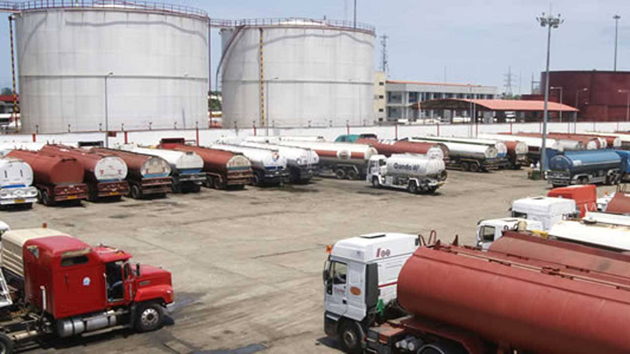
The Director General, Nigerian Institute of Social and Economic Research (NISER), Professor Antonia Simbine; Head, Department of Economics, University of Ibadan, Professor Adeola Adenikinju; Head, Economic and Business Policy Department, NISER, Louis Chete, and Associate Professor of Political Science, Dr. Tunde Oseni among other economics experts have appealed to Nigerians for understanding over President Bola Tinubu’s decision to remove fuel subsidy.
The experts and university dons at the weekend said that the immediate pains and discomforts that characterised the policy cannot be compared to the gains and benefits it would bring to the nation’s economy, growth and infrastructure development, in the shortest and nearest future.
Explaining the findings of a research, at a reflection seminar entitled: ‘Fuel Subsidy Removal: The Why, How and Way Forward,’ by NISER, in Ibadan, Adenikinju said while the price of petrol had gone up by 250 per cent, the adjustment that had happened to prices of goods and services had been minimal and muted, in some cases.
He highlighted the various anomalies around Nigeria’s petroleum pricing under the subsidy regime, with a particular reference to the 2009 and 2020 pricing templates that pass the brunt of inefficiencies to consumers.
He said that rather than the poor being cajoled to believe that they would suffer the most over fuel subsidy removal, “the rich and smugglers greatly benefitted from subsidy removal, hence were at the forefront of calls for subsidy not to be removed. “If the government hands off subsidising fuel, the benefits of fuel subsidy removal would be seen in the coming months.”
According to him: “Part of the benefits expected in the post-subsidy era is that more private refineries will be built.”
Simbine, in her opening remark, appealed to Nigerians to understand the fact that Tinubu’s decision to remove fuel subsidy was long overdue.
According to her, “Mr. President had taken the bull by the horn by announcing fuel subsidy removal, but it is also necessary for the government to evolve palliative package to build public support and gain legitimacy for the policy.” She added that immediate implementation of compensation measures should be combined with a reduction in the cost of governance as well as blocking loopholes of wastage.
Chete, in his delivery, underscored the need for immediate compensation mechanisms for Nigerians, saying, the post-subsidy era was expected to provide higher economy-wide benefits, provide government deplore workable compensating mechanisms, including e-wallet programme for smallholder farmers, mass transit schemes, digital-enabled cash transfer scheme, free health care for the vulnerable, transport vouchers, among others.
MEANWHILE, panelists at the seminar, worried about the palliatives that would be provided to cushion the effects of fuel subsidy removal, just as they expressed concern whether those that really need the palliatives would be reached.
Oseni said that he feared that the lack of accountability and transparency that characterised fuel subsidy scheme might also deck the implementation of compensation measures.
“The gains of fuel subsidy removal must be immediate, warning that monsters could be created if people don’t see the gains in a short while,” he warned
A consultant in International Development Practice, Dr Omowumi Akin-Onigbinde said while it is agreed that the fuel subsidy scheme was not beneficial to the masses, it would be disappointing if the palliatives scheme derail.






